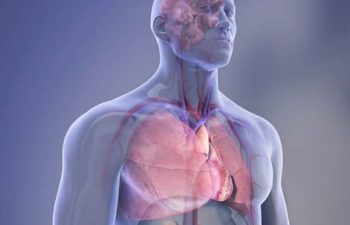
Obesity and heart disease have always had a confusing relationship. While it is considered “common knowledge” that they are closely linked, and that obesity causes a multitude of heart problems, very few people actually take the time to examine just how obesity can affect the cardiovascular system.
How Does Obesity Relate To Heart Disease?
1. Coronary Artery Disease (CAD)
Coronary artery disease is caused when there is a buildup of cholesterol plaque in the heart’s arteries. Now, CAD is not only caused by obesity. There are multiple health risk factors that can cause the cholesterol buildup. However, obesity is certainly one of those factors – especially “central obesity”, i.e., obesity centered around the abdominal area of the human body.
2. Sleep Apnea
Obstructive sleep apnea is a condition in which the body stops breathing while sleeping. It is caused when the throat muscles relax and block the airway during sleep. This lack of breathing can sometimes last up to 10 seconds, which causes a shortage of oxygen supply and a buildup of carbon dioxide in the respiratory system.
Obesity is one of the major causes of obstructive sleep apnea. This is because the fat deposits around the upper airway can cause obstruction. A sudden drop in the oxygen levels of the body can then have a negative effect on the cardiovascular system, increasing blood pressure and contributing to hypertension.
3. Atrial Fibrillation
Atrial fibrillation is the most common type of heart arrhythmia, which is defined as an abnormal heart rate or heartbeat rhythm. When one suffers from AF, there is a lack of synchronization between the different chambers of the heart. This leads to an ineffective and out-of-sync transfer of blood between heart chambers, thereby causing slowing of blood flow and an increased risk of clot formations.
AF is a condition that many can be predisposed to, either due to genetics, pre-existing conditions, or lifestyle choices. But obesity is one of the major risk factors associated with AF. A study has shown that obesity increases the risk of AF by almost 49%, and this risk increases with a higher Body Mass Index (BMI).
4. Heart Failure
Multiple studies have shown the close relationship between obesity and heart failure. One study (Framingham Heart Study) showed that a rise in BMI by even 1 kg/m2 increases the risk of heart failure by 5-7%. 32-49% of patients who suffer from heart failure happen to be obese, with another 31-40% being overweight. Moreover, obesity can increase the risk of heart failure much earlier than the natural risk with old age.
This is, once again, due to excess weight having a negative impact on the functioning of the cardiovascular system. Inflammation and irregular blood pressure are contributing factors to heart failure, which are further impacted by obesity and overworking of the heart muscles.
5. Venous Thromboembolism
Venous thromboembolism is a condition in which blood clots form in the deep veins of the calf, leg and groin muscles (known as deep vein thrombosis). Obesity is one of the major causes for this, as well as low mobility. This is because the pumping function of blood is not enough, or severely over-stressed. DVT isn’t just incredibly painful, causing discomfort and intense cramps. If undetected or unaddressed, the clot can travel to the lungs causing a pulmonary embolism (which is fatal).
Are There Other Links Between Heart Disease And Obesity?
Heart disease and obesity most certainly have a link, whether direct or indirect. Even if obesity isn’t directly leading to cardiovascular problems, it can cause a host of other issues – such as hypertension, type II diabetes, low mobility – all of which can then lead to heart problems.
Weight loss and a healthy lifestyle is a sure way of ensuring that obesity is a factor that can be eliminated from your chances of getting a heart disease. Sometimes this can be done just by change of diet and a regular exercise regime. But sometimes, especially in cases of very high BMI, it might be time to consider other options. Speaking to weight and wellness experts, such as Dr. David Davtyan, is a great way to know if surgical means can ensure obesity control. Talk to your medical team, and address the issue today.
Posted on behalf of Dr. David G. Davtyan MD, FACS, FICS





